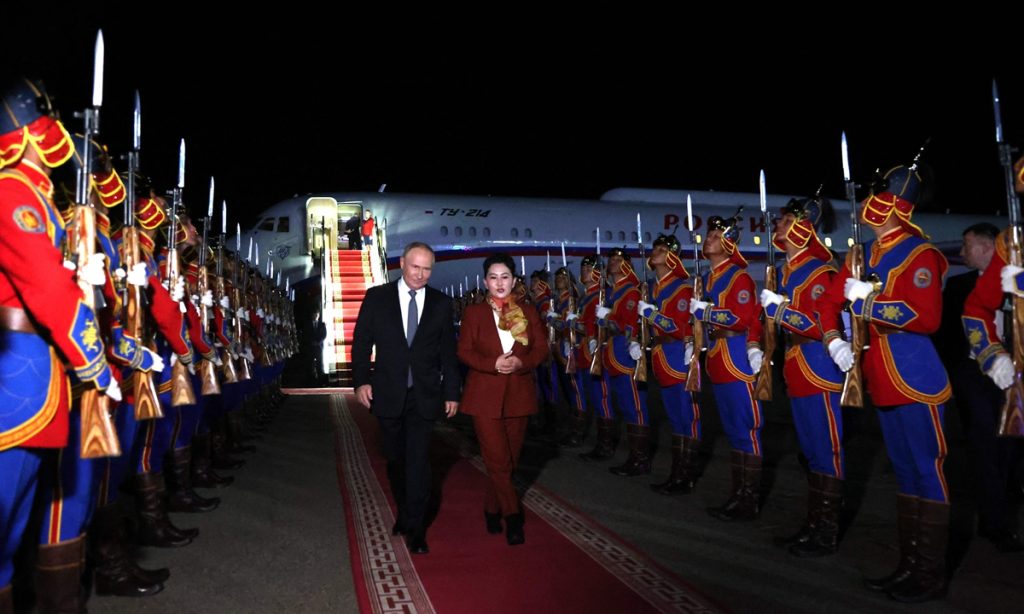Putin’s Mongolia visit eyes ‘enhancing economic ties, a continuation of Pivot to the East policy’

At the invitation of Mongolian President Ukhnaagiin Khurelsukh, Russian President Vladimir Putin will pay a state visit to Mongolia on September 2-3, with meetings between two sides would be devoted to key issues of bilateral relations and promising areas of cooperation.
Analysts said Putin's visit is a continuation of Russia's "Pivot to the East" policy, and is aimed at enhancing economic cooperation, with neighboring countries, against the background of continued pressure from the West amid the Russia-Ukraine conflict.
According to the Kremlin official, Putin will arrive in Ulaanbaatar on the evening of September 2. He will meet with Mongolia's President Khurelsukh, Chairman of the Great State Khural of Mongolia Dashzegviin Amarbayasgalan and Prime Minister Luvsannamsrain Oyun-Erdene during his visit, according to TASS.
Yury Ushakov, the presidential international affairs aide, said that "Promising areas for interaction between our countries will be discussed, including cooperation in the sphere of industry, agriculture, energy and transport, including the railroad one. Naturally, international and regional problems will be highlighted."
Chen Yurong, an expert with the Beijing-based China Institute of International Studies, told the Global Times on Monday that Putin's visit to Mongolia will see economic and political connections between the two countries strengthened, especially in the energy sector.
Due to its unique location between China and Russia, Mongolia places great importance on its relations with both countries, according to Chen.
Cui Heng, a scholar from the Shanghai-based China National Institute for SCO International Exchange and Judicial Cooperation, told the Global Times that Putin's visit to Mongolia also marked the continuation of Russia's "Pivot to the East" policy.
He said the policy has promoted the industrialization in Russia's Far East region and helped forge closer cooperation between Russia and Asia-Pacific countries.